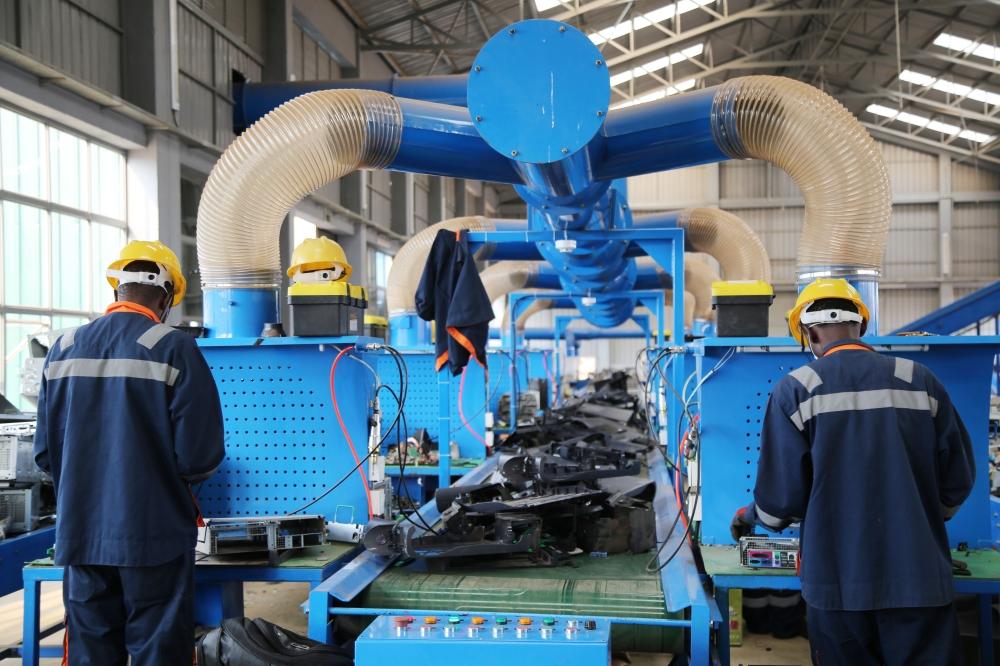Africa-Press – Rwanda. Kigali is set to host this year’s World Circular Economy Forum (WCEF), bringing together participants from around the world, with an aim of moving towards a more resilient and greener global economy.
The forum, slated for next week, December 6-8, will be hosted in Africa for the first time in its six editions.
The focus, organizers said, will be, among others, how the circular economy can reduce greenhouse gas emissions, support climate change adaptation, as well as safeguard biodiversity and bring benefits to societies.
Also to challenge during the conference are the “many” shortcomings and destructive consequences of the predominant linear economy, while at the same time introducing the opportunities of the circular economy.
Here is what you should know ahead of the two-day conference.
Africa’s crucial role
Commenting on the development, Minister of Environment, Jeanne d’Arc Mujawamariya, pointed out that as a founding member of the African Circular Economy Alliance (ACEA), Rwanda is proud to host the forum for the first time in Africa.
Minister for Environment Jeanne d’Arc Mujawamariya pointed out that, as a founding member of the
African Circular Economy Alliance, Rwanda is proud to host the forum for the first time in Africa. Photo: File.
“The circular economy represents the single greatest opportunity to supercharge green growth and job creation in Africa, and we look forward to sharing Rwanda’s experience and learning from others.”
She added, “With the youngest population in the world, the African continent can take a crucial role in the global transition towards circularity. Rwanda is proud to host the World Circular Economy Forum 2022, showing African leadership and commitment.”
Africa, like the rest of the global south, is expected to face the most severe impacts of climate change and biodiversity loss as a result of the take-make-waste economic paradigm.
At the same time, the continent has vast natural resources, and a young, vibrant and entrepreneurial population. As such, it is seen as having both incentive and potential to play a lead role in driving the circular economy model and building greater resilience across the globe.
Resilient and future-proof
Jyrki Katainen, President of Sitra, the Finnish Innovation Fund, argues that transitioning to a circular economy is a way to make economies wiser, resilient and future-proof.
“These past years’ tragedies have shown that we are not resilient. The impacts of the pandemic, shifts in the global security environment, energy and food security are exacerbated by a fossil fuel dependent, wasteful and unfair linear economy. Now, we need to challenge the old model and build a new one, fit for today and for the centuries to come – the circular economy. Many solutions are already right in front of us, and we look forward to learning more about circular solutions from Africa in Kigali.”
Katainen also believes that the circular economy is an alternative to the traditional linear economy (make, use, dispose) in which resources are kept in use for as long as possible, maximum value is extracted from them whilst in use, then materials are recovered and products are reused at the end of their life.
Waste management, recycling are key
In the transition from a linear to a circular economy waste management and recycling are key components and need to be improved and scaled rapidly.
Africa already imports vast amounts of electronic and other waste, and with a rapidly growing population, will produce more waste.
Circular economy approaches provide solutions for reducing waste by investing into modular product design, reduced packaging, life cycle extensions and product-as-a-service business models where using a product does not require ownership.
Overcoming the challenges of circularity
Africa’s vast natural resources and its young and entrepreneurial population can help it play a lead role in driving the circular economy transition and its contribution to achieving the UN Sustainable Development Goals (SDGs).
But two main challenges will need to be overcome; legislation and finance.
Experts say that existing laws and regulations need to change to allow for more circularity and that is why the global forum will facilitate policy dialogues and knowledge sharing as a circular economy transition requires lawmakers, governments and others to inspire and learn from each other.
Equally important are new financing models for circular businesses that are urgently needed.
The current capital flows into sustainable businesses and circular ventures are far too low. Circular economy companies need to develop bankable businesses that attract venture capitalists willing to take a risk. Development banks and other institutions can de-risk such investments with grant financing and technical assistance.
These reforms require debate and innovation, which WCEF2022 will help provide, organizers pointed out.
Hybrid event
While the main event will take place in Kigali, various participants will join virtually at the event in cities like Yaoundé, Lagos, Cape Town and Lusaka.
According to organizers, participants will tackle specific national and regional challenges related to the shift from a linear to a circular economy.
For More News And Analysis About Rwanda Follow Africa-Press






